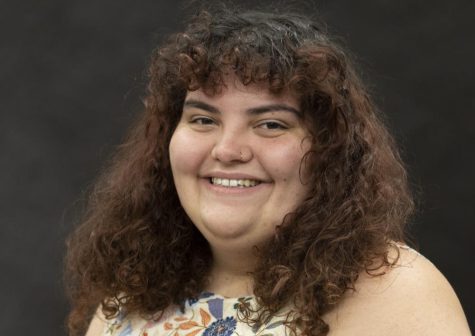Potential Douglas Hall name replacements
November 24, 2021
Eastern’s Naming Committee is tasked with reviewing a list of individuals who Douglas Hall could be potentially renamed after.
The individuals being considered are former Illinois Governor Edward Coles, former student athlete and Tuskegee Airman Captain Charles B. Hall, former University President Louis V. Hencken, community members who assisted students with housing Ona and Kenneth Norton, Eastern’s first Black student Zella Powell and former life sciences professor and Director of Afro-American Studies William Ridgeway.
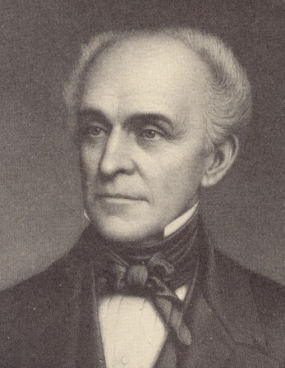
Edward Coles was native Virginian and served as Illinois’ second Governor from 1822 to 1826.
Edward Coles was a member of one of the First Families of Virginia, prominent and wealthy families who were descendants of English colonists. He was the youngest male child of John Coles and Rebecca Tucker.
When his father died, Edward Coles inherited around 20 slaves and a 782-acre plantation. Once the estate was settled, Edward Coles was met with resistance from his family when he announced his intentions to emancipate the enslaved people.
Coles emigrated to Illinois in 1819 bringing his inherited slaves and wealth with him, according to the Madison County Historical Society.
Beyond freeing the majority of slaves he inherited, Edward Coles also provided employment and other ongoing support. It is the general belief that some of the enslaved people went separate ways on the path to Illinois and one family remained in slavery while a debt was paid so that the family’s basic needs would be met.
Starting in college and throughout his adult life, Edwards Coles was an advocate for emancipation. During his time as Governor of Illinois, Edward Coles called on the legislature to abolish slavery in Illinois and recommended the 1819 Illinois Black Code be revised.
As pro-slavery groups advocated for Illinois to fully legalize slavery, Edward Coles “distributed antislavery literature, wrote articles for the ‘Illinois Intelligencer,’ and spent large sums of his own money to ensure the defeat of the referendum,” according to the Madison County Historical Society.
Additionally, Coles spent five years as the secretary to former U.S. President James Madison.
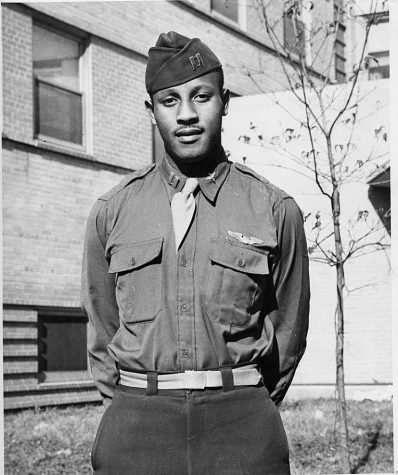
Charles B. Hall was born in 1920 and was raised in Brazil, Indiana.
After graduating from high school in 1938, Hall went on to attend Eastern Illinois State Teachers College on scholarship. Hall was a pre-med major.
Hall was a star on the football and track teams for two years before leaving Eastern to enlist in the Army Air Corps.
Hall went to the Tuskegee Institute to be trained for his service in World War II. He was one the first 43 Black Americans to participate in the training at the institute.
On July 2, 1943, Hall became the first Black American combat fighter to shoot down an enemy aircraft.
Hall was quoted in the “Times” explaining what led up to him shooting down a Nazi plane and what took place directly after.
“It was my eighth mission, but it was the first time I had seen the enemy close enough to shoot at. I saw two Focke-Wulf’s following the Mitchells just after the bombs were dropped. I headed for the space between the fighters and the bombers and managed to turn inside the Jerries…I fired a long burst and saw my tracers penetrate the second aircraft. He was turning to the left, but suddenly fell off and headed straight into the ground,” Hall said. “I followed him down and saw him crash. He raised a big cloud of dust.”
His military action earned Hall the Distinguished Flying Cross, making him the first Black American to receive the honor.
Hall went on to down three more enemy planes before the end of his service and flew 198 missions over Africa, Italy and parts of Europe. Towards the end of his military service, Hall spent a year on a war bond drive.
Hall then moved to Chicago to work as an insurance agent, later relocating to Oklahoma City to work at Tinker Air Force Base and the Federal Aviation Administration.
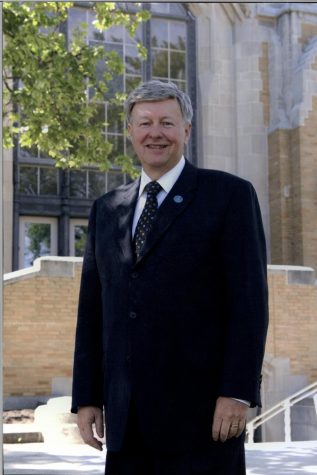
University President Louis V. Hencken
Louis V. Hencken earned his undergraduate degree from Eastern in 1967. He was a member of Beta Sigma Psi, Gamma Delta and Circle K International while an undergraduate student.
Hencken began his career at Eastern as a residence hall counselor at Douglas Hall, moving through the ranks as associate and assistant director of housing, director of housing, associate vice president for student affairs, vice president for student affairs, interim atheletic director, eventually leading to him being named university president in 2001.
He served as president until 2007.
Hencken has multiple awards named in his honor, including the Louis V. Hencken Alumni Service Award, the Louis V. Hencken Housing Service Scholarship and the Lou and Mary Kay Hencken Scholarship.
Additionally, Eastern’s chapter of the National Residence Hall Honorary is named after Hencken.
Hencken received support on the Daily Eastern News Facebook post sharing the names the committee is tasked with reviewing.
“Given Lou Hencken’s lifelong dedication to not only the University, but to housing specifically, there is no better choice in my mind to rename the residence Hencken Hall,” Stacy Rowan, a 2017 graduate of the College Student Affairs master’s program, said.
“I’m so excited to (see) Lou Hencken on the list,” Kaylia Eskew, a 2014 graduate, said.
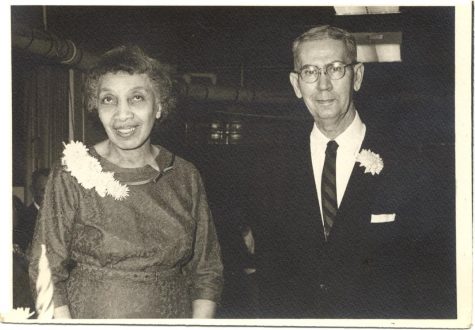
Ona and Kenneth “Crackers” Norton were residents of Charleston who opened their home to Black athletes who were unable to secure housing on campus.
Ona Norton and Kenneth Norton both came from well-known Coles County families; Ona Norton coming from the Stoner family of Charleston and Kenneth Norton coming from the Norton family of Mattoon, his father being a prominent barber in the area.
When the couple married in 1913, they carried on their families’ tradition of being well-known in the community. Kenneth Norton worked as a shoe shiner in various barbershops and Ona Norton held employment at Edman’s Bus Station and the Charleston Country Club, as well as operating a beauty salon where she is believed to have given the first permanent wave in Charleston.
In the 1950s, former Eastern football coach Ralph Kolh asked the couple to open their home to Black athletes who could not find housing on campus, which turned into operating multiple homes for Black men and women to live in while attending Eastern.
Ona Norton was named the 1967 Woman of the Year by the Charleston Chamber of Commerce and has a scholarship in her name for Black students at Eastern.
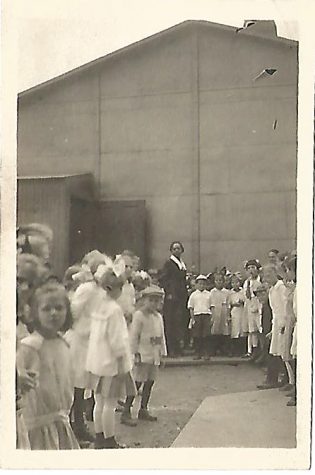
Zella Powell was Eastern’s first Black graduate in 1910.
Powell was a member of the prominent Powell family of Mattoon, being born to John Powell and Victoria Barr Powell.
Powell’s family is considered to be a pioneer family of Mattoon and her father was the first child to be born in Mattoon.
Though the family was well-known, Powell’s granddaughter, Stephanie Wright Griggs, said they were a typical middle-class family.
Wright Griggs created a traveling exhibit, Picture Perfect: Zella’s Traveling Scrapbook, to showcase her family’s life.
Wright Griggs said she does not know the specifics of her grandmother’s life in college, but she has thought about what it must have been like for her grandmother being Eastern’s first Black student.
“You know, I wish I’d asked her. I was too young to know that at the time. You know, we all have desires to go back in time and talk about it. I mean, she was ill and I was 13. When we were younger she talked about it, but she talked about it in passing because, I mean, Black people did not discuss those stories, the struggle, because they weren’t really sure how they’d be perceived by the framework. And a lot of times, they did not want to share that burden. And I’ll turn around and say I don’t know that was a burden for my grandmother’s to the extent of some, but I know it had to be,” Wright Griggs said. “Because on one hand, I looked at the fact she basically grew up in a pretty predominantly white community. So she had a different sense of expectations, just having lived in that environment versus people who weren’t in that environment.”
After graduating, Powell taught in Mattoon before moving to Chicago to teach, where she spent much of her life and met her husband Albert Lovett.
The couple had one daughter, Louise, who later married Charles H. Wright, a Detroit doctor, founder of the Charles H. Wright Museum of African American History and civil rights activist. Powell’s granddaughters, Wright Griggs and Dr. Carla Wright went on to be the CEO of Provident Hospital in Chicago and a medical doctor respectively.
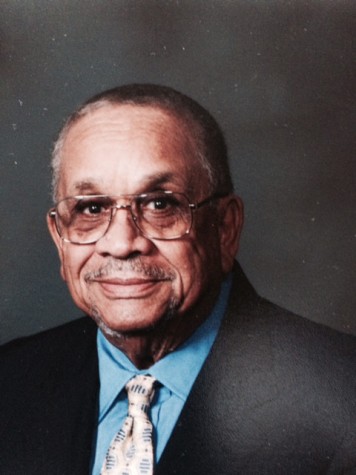
(Submitted Photo)
William Ridgeway came to Eastern in 1966 as a Zoology professor and in the early 1970s became the Director of Afro-American Studies.
Ridgeway came to Eastern with a Ph.D. from the University of Missouri at Columbia. He was the third Black professor at Eastern.
One of his longest-lasting impacts at Eastern was his part in the founding of the Zeta Nu Chapter of Alpha Phi Alpha Fraternity, Inc.
Being a member of the Beta Phi chapter of Alpha Phi Alpha Fraternity, Inc., Ridgeway wrote to Lawrence Young on Oct. 23, 1968 to share his interest in starting a chapter at Eastern.
The chapter received their charter on January 25, 1969. Originally the Theta Nu chapter, Eastern’s chapter of Alpha Phi Alpha Fraternity, Inc. was later renamed Zeta Nu.
The Zeta Nu chapter of Alpha Phi Alpha Fraternity, Inc. was the first Black fraternity to be founded at Eastern.
Upon Ridgeway’s death in 2015, the chapter’s advisor DeMarlon Brown spoke to the heavy influence Ridgway had on the Zeta Nu chapter of Alpha Phi Alpha Fraternity, Inc., saying Ridgeway was instrumental in the founding of the chapter at Eastern.
Brown said Ridgeway’s dedication to the chapter did not end with his retirement.
“Even with his age, he never stopped,” Brown said. “He was a brother’s brother and he didn’t want us to just be better Alpha men, but better men in general. And the best way to teach us is to be an example of it.”
Brown said Ridgeway was a powerful figure for students.
“He gave us the feeling that we could conquer, just based off what he did,” Brown said. “He set the tone for all of us and anything less than that would be a waste.”
Eastern’s Naming Committee’s next meeting is tentatively scheduled for Dec. 15 at noon.
Corryn Brock can be reached at 581-2812 or at deneic@gmail.com.

















![[Thumbnail Edition] Senior Foward Macy McGlone, getsw the ball and gets the point during the first half of the game aginst Western Illinois University,, Eastern Illinois University Lost to Western Illinois University Thursday March 6 20205, 78-75 EIU lost making it the end of their season](https://www.dailyeasternnews.com/wp-content/uploads/2025/03/WBB_OVC_03_O-1-e1743361637111-1200x614.jpg)


















































